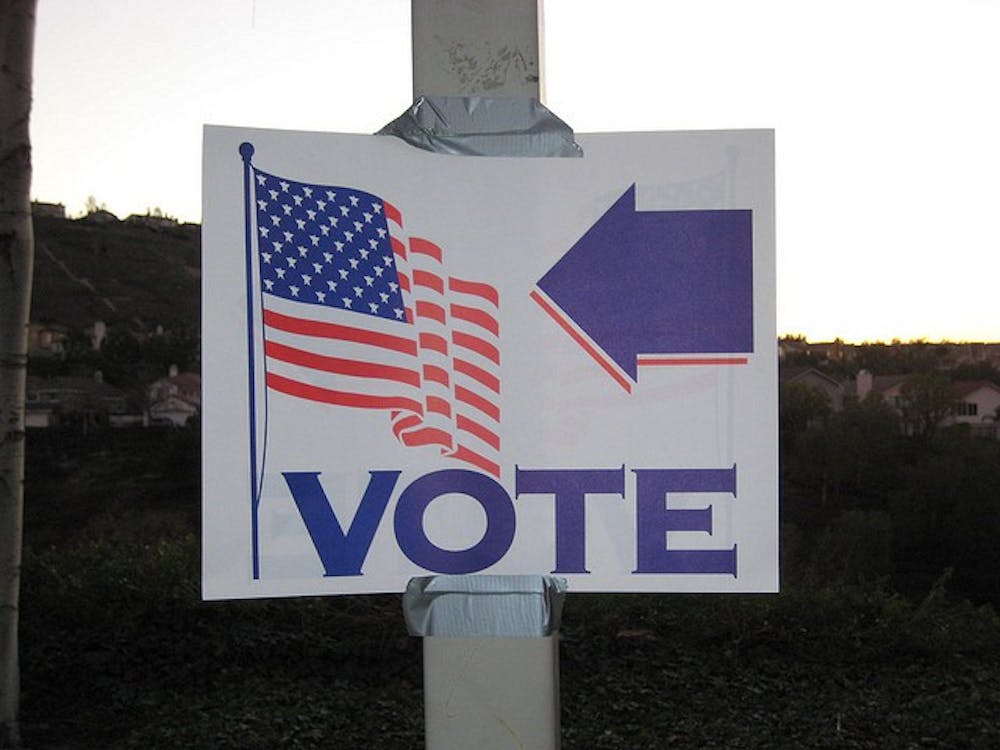I’m going to admit something to all of you that I probably shouldn’t admit in print. Especially in print that will be read in Washington, D.C. Someone might come take my WONK buttons away.
Deep breath. I’m 20 years old. And, despite being eligible to, I’ve never voted.
I can hear you now. The outrage. The anger. How could you? It’s your patriotic duty! It’s the best form of civic participation! Rock the vote! And, of course, someone out there is thinking what would Lena Dunham say?
Look. It sounds bad. I know it sounds bad. There was a mixup with my address, the time and a really very unfortunate spelling of my last name…you know what? The why is unimportant. I am forward thinking—this year, I will vote.
But this time (she says like there was another time to refer to), I am going to vote in D.C. And I want you, dear reader, to strongly consider doing the same.
As college students, most of us have the odd choice of deciding where to vote. In addition to the many other things the Founding Fathers did not foresee about the 21st century, the proliferation of people who will choose where to vote is surely on the list. But I have to wonder…if any of us had asked James Madison where we should vote, what on earth would he tell us?
Yes, it’s a silly question. For a lot of reasons, including the fact that James Madison would likely give me a bewildered look and inquire as to why a woman who owns no property even has this problem in the first place. Including what the Founding Fathers thought is not usually directly applicable to our modern lives. But it does bring up an interesting point….if you have to choose where to vote, how exactly should you make that choice?
The Nov. 4, 2014, Washington D.C. election has some interesting issues on the ballot—whether Muriel Bowser will become mayor, whether D.C. will legalize small amounts of cannabis and who will be elected to the State Board of Education. But none of those issues are why I want to vote here. Don’t get me wrong—they’re all incredibly important issues that we should inform ourselves about. But I want to vote in D.C. because I live in D.C.
There are going to be important, life changing issues on every ballot in every state that is having an election this year. And even if I value some of the issues in D.C., like marijuana legalization, more than I value some of the issues on my Illinois ballot, like keeping my gerrymandered representative in the house, I don’t think that’s why I should vote in D.C. Even if I value the issues in D.C. more this year, I might value the issues in Illinois more next year. The fact that my state continuously has dull elections doesn’t mean yours does—you could value issues on both ballots equally.
I want to vote in D.C. because I live here. The property taxes that I pay through my rent and my tuition help to fund the police I would call if I were mugged on the metro and the fire station I would call if the house I was babysitting in started to smoke. It’s my money, my jobs and my education. It’s my neighborhood, it’s my metro.
And yes, I know that with our lack of voting representation and the need for Congressional approval on most things my vote in D.C. will not have a lot of political impact. But honestly? I don’t think voting is about having an impact on politics. In fact, if you want to have an impact, join an issue campaign, start a civil organization, do literally almost anything beyond a simple vote and run.
Voting where you live isn’t about having an impact, it’s about voting where you are impacted. Vote in D.C., where you have some skin in the game. Vote here so you can be justified in complaining here. Vote here so you can tell politicians that you are a constituent when you talk to them. Vote here because you live here.
But, of course, educate yourself on the issues first. And make sure to spell your last name correctly when registering. Trust me on that last one.
Shelby Ostergaard is a junior in School of Public Affairs.


